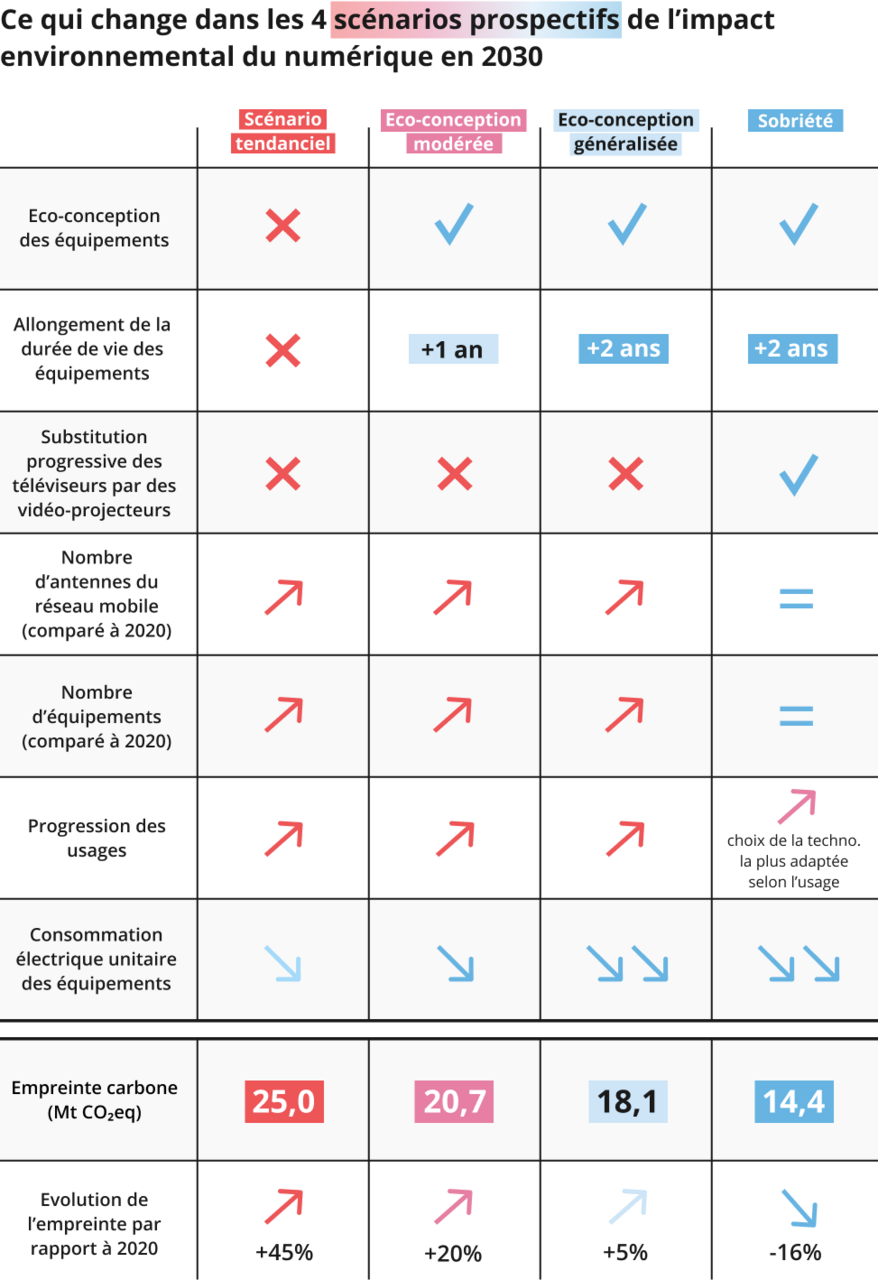November 22, 2023
Digital can't save the world, a very personal account of the GreenTech Forum 2023
The GreenTech Forum, what is it?
- Simply put, it's the trade event focused on digital and the environment.
- This is the 3rd edition in 2023.
- There were over 2,000 visitors.
- Finally, on a more subjective note, I found that the program oscillated between GreenIT (which is more internally oriented) and Digital Services, this time including the external.
Without action to limit the growth in the environmental impact of digital technology, its carbon footprint could triple between 2020 and 2050.
Let's highlight these different indicators, because the debate is polluted by the carbon vision alone ;). Indeed, working on the carbon aspect without touching the other indicators can lead to transfers of externalities or neutral or negative side-effects on a global scale, all the while greenwashing.
Life Cycle Assessment: to go beyond the carbon vision, long live the LCA method
-
Start with why, LCA can be used for 3 purposes: diagnosis, eco-design or communication.
-
A robust method, it has long been used in sectors such as construction. However, it is much more recent in the digital sector.
-
It assesses the environmental impact of a product or service throughout its life cycle, including end-of-life.
-
Once again, multi-indicators beyond carbon.
-
Several levels of detail can be envisaged to balance the time spent vs. the gain in precision, and a simple Excel sheet may suffice to get you started.
- Ademe provides databases for calculations, as well as free online software Base Empreinte.
-
As we all know, the social dimension is still missing from all this. Europe would like to integrate it into the PEF or Product Environmental Footprint method, which is the equivalent of LCA.
If you liked the RGAA, you'll love the RGESN or Référentiel Général d'Éco-conception des Services Numériques.
In France, the Référentiel Général d’Eco-conception des Services Numériques, the general eco-design framework for digital services or RGESN, complements the existing GDPR, RGAA and other regulations.
As I write, it's undergoing consultation - you could almost call it user testing - and the official version should be up and running by Jan. 1, 2024. In the meantime, you can already consult it online.
The framework will behave like the RGAA, with 79 criteria to evaluate, from strategy to hosting to UX/UI. One of the results will be a percentage of eco-design compliance for your digital service.
It may not sound like much, but it's a real revolution! We've had almost 15 years to comply with the RGAA and accessibility. Eco-design is going to go a lot faster!
Re-inventing imaginary worlds to win people over
- Are we happier to receive a parcel in a few days from the other side of the world? Because the ecological impact is significant.
- Unfortunately, this "speed" is becoming a social norm and calls for us to go even faster. Otherwise, it's hard to be "successful" and live "slowly".
- Other impacts include burn-out, dependence on notifications and smartphones. Having deceleration bubbles, like yoga or pilates, is not enough to change the paradigm.
- Technology gives us the illusion that we can avoid changing our lifestyle. lifestyle. E.g.: hydrogen could save aviation, but if we look coldly at the hydrogen production required, we're talking about 20 new nuclear reactors for the French civil fleet alone.
Tomorrow's IT for Green?
What's the GreenTech Forum 2024 all about? To see if we can save the world in spite of everything? See you next year, and in the meantime, tell us about your projects :)
All articles from the category: | RSS


